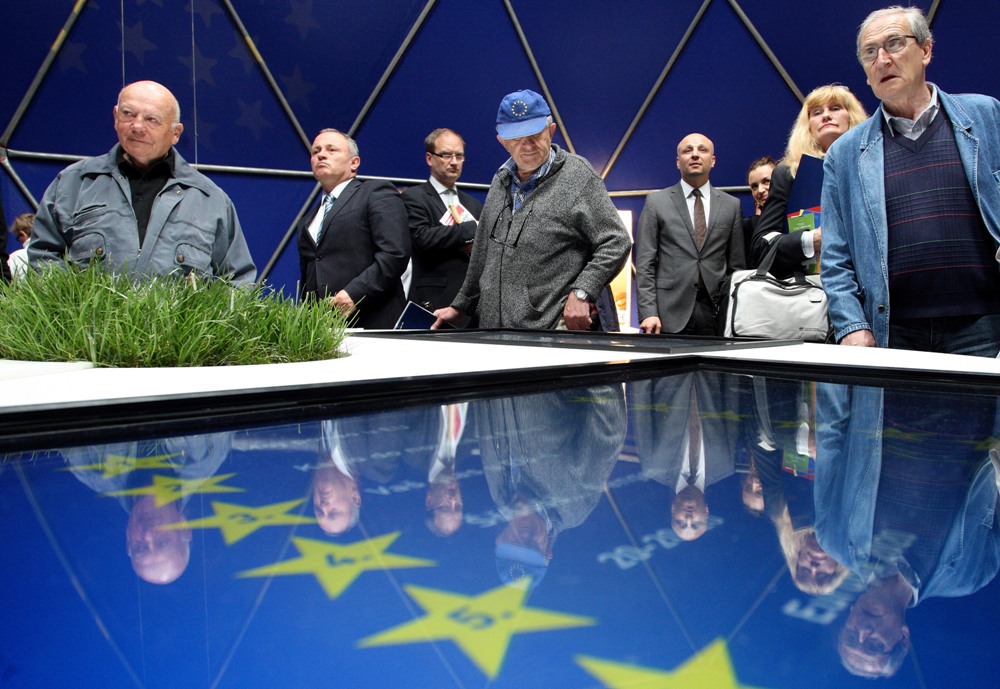With Croatia’s accession, the European Union is getting a member who brings an authentic, added value – its recent experience of the war as well as social, political and economic transition. New opportunities arise for Croatia, primarily its young, educated professionals that could have barely been dreamed of by previous generations. Yet, on the day of Croatia’s entry to the EU, many Croatian citizens see themselves more easily as losers of all the changes, accompanied by numerous injustices that took place over the past two decades. Many challenges lie ahead of us in our struggle for democracy and respect for human rights and we should never forget the imperative of solidarity with all victims of war, violence and transition.
In order to break the pattern of unresolved traumas and divisions from the past, which poison relationships and harm the quality of life of future generations, it is necessary to deal with the grave legacy of the past in a consistent and unbiased manner. The exploration of specific responses aimed at peacebuilding is now also the responsibility of the EU institutions. In these processes, the active civil society in Croatia will continue to work towards improvements of the political and institutional framework both in Croatia and in the European Union.
According to the Platform 112’s Report on Open Questions related to the Legacy of War, Dealing with the Past and Peacebuilding, civilian victims of war are still waiting for the resolution of burning issues. It is necessary to improve the victim and witness support system, shed light on the destinies of the missing persons and provide reparations to the victims of war. In addition to effective and non-selective investigation and processing of war crimes and the resolution of the problem of lawsuit charges to the family members of the killed persons, mostly of Serbian nationality, we expect political support for the establishment of the Regional Commission for Determining the Facts on War Crimes and Other Heavy Breaches of Human Rights (REKOM).
There is insufficient progress in respect to the war-related housing issues. The provision of housing to the returnees is not regulated in a comprehensive manner, while particular acts discriminate against citizens of Serbian nationality. Holders of tenancy rights have been degraded into lodgers, which is a clear case of non-application i.e. violation of Croatian laws and international treaties. It is necessary that the state take responsibility for the property damage caused by unlawful investments, the provision of housing and resolution of statutory and labour matters of the victims of war and holders of tenancy rights.
Croatia can act as a credible, successful and responsible member of the EU by initiating the development of institutional mechanisms for ensuring the right to truth, justice, reparation and warranty that the war crimes will not be repeated. After the past mistakes of the Croatian politics towards Bosnia-Herzegovina, now is the time for Croatia to use its mandate and take responsibility to positively influence the EU policy towards further enlargement and development. Instead of a Union of the North and the South, creditors and debtors, bureaucrats and populists, the Union should ground its policies in solidarity and democratic legitimacy, hence ensuring dignified life to all of its citizens.
Platform 112 is a coalition of seventy civil society organizations in Croatia involved in human rights protection, democratisation, peace-building, fight against corruption and protection of public resources, namely the environment- They have jointly specified their 112 requests, addressed to all political options prior to the parliamentary elections, in which they have defined priorities and specific measures for Croatia in which the rule of law provides the basis for individual, institutional and political action. We demand and expect consistency and political accountability of the new Government, including all other political actors and institutions, in order to ensure realistic and permanent improvements in five high-priority and interconnected areas:
(1) stable, responsible and democratic government institutions and equal access to justice
(2) quality of democracy
(3) combating corruption and protection of public interest
(4) equality and dignity of all people
(5) legacy of war, confronting the past and peace- building.
